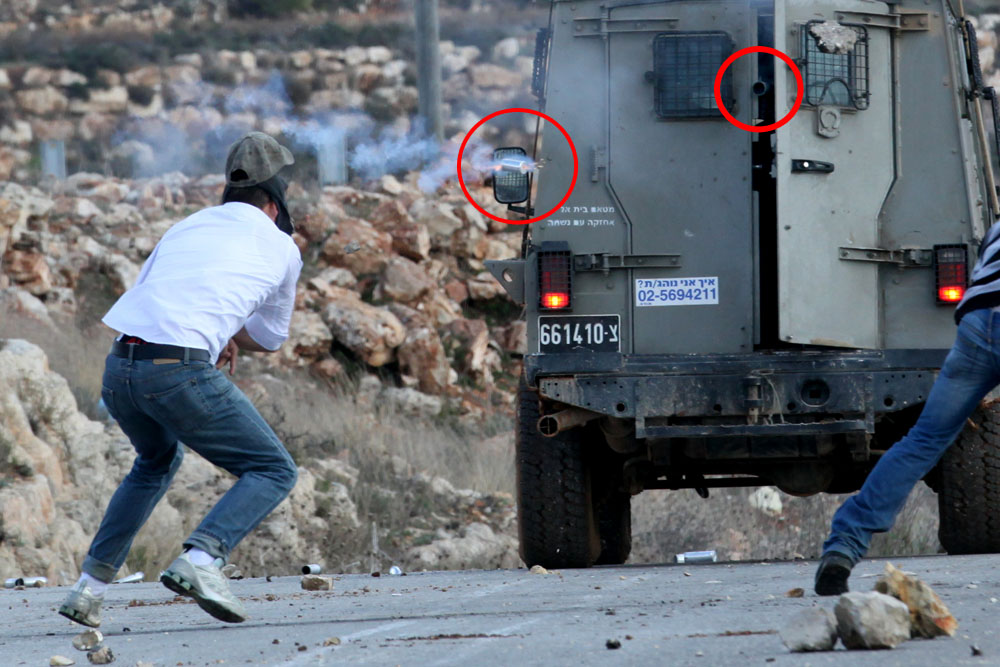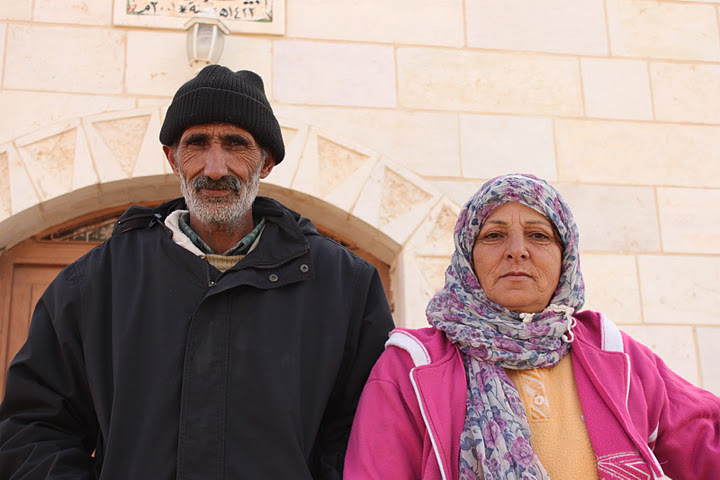Tag: Settlers
-
Military teargases Kufr Qaddoum following nightly raids and arrests
by Alistair George 9 December 2011 | International Solidarity Movement, West Bank The Israeli military fired tear gas canisters directly at demonstrators in Kufr Qaddoum today in an aggressive response to the weekly protest against the closure of the main road linking the village with Nablus. Many people suffered from severe gas inhalation. After midday…
-
Palestinian protester severely injured in Nabi Saleh
by Jonathan Pollack 9 December 2011 | Popular Struggle Coordination Committee Mustafa Tamimi, a 28 year old resident of Nabi Saleh, was shot in the face today, during the weekly protest in the village of Nabi Saleh. He sustained a severe injury to his head, under his right eye, and was evacuated to the Belinson…
-
Al Baqa’a: The struggle of a family in the shadow of illegal annexation
by Alistair George 17 November 2011 | International Solidarity Movement, West Bank “The Israelis hope that that the young people leave, the old people die, and then they can confiscate the land and the houses” says Sami, an activist working in Al Baqa’a, a windswept valley situated a few kilometers east of Hebron. The Jaber…



